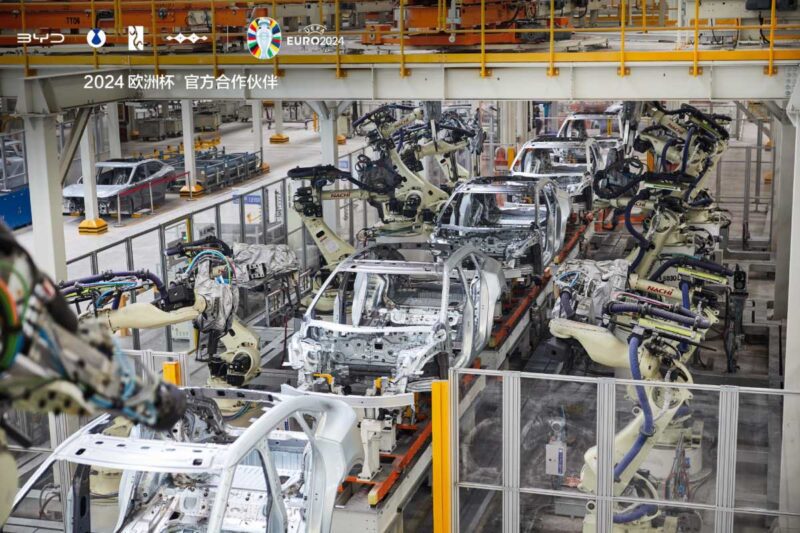The EU’s preliminary tariffs on electric cars made in China are “the wrong instrument” and will slow the transition to clean mobility, Germany’s car industry and the country’s utilities have warned.
The additional duties, which range from 17 to 38 percent, “do not help to achieve the climate targets nor do they support the transformation”, said the president of car industry association VDA, Hildegard Müller, in a joint press statement with the head of utility association BDEW, Kerstin Andreae.
“Only with open, global sales markets can economies of scale be utilised and, as a result, more e-cars put on the road,” they argued. “Global challenges require global partnerships. Challenges should be mastered through dialogue, and solutions should primarily be sought in partnership. Additional tariffs on EVs from China are the wrong instrument.”
In a bid to protect Europe’s car industry from what it says is unfair competition, the European Commission said it will impose additional duties on imported Chinese electric cars from July.
Italy welcomed the step, and the French car lobby group PFA said the Commission needed to defend European interests against anti-competitive practices. France had pushed particularly hard for the extra tariffs, which come on top of the existing duty of 10 percent, in reaction to rapidly rising imports of relatively cheap electric cars made in China.
The German government was also critical of the additional tariffs, which will also affect Western carmakers with electric car production sites in China, such as BMW.
“The EU Commission’s punitive tariffs affect German companies and their top products,” said transport minister Volker Wissing.
“Vehicles must become cheaper through more competition, open markets and significantly better location conditions in the EU, not through trade wars and market compartmentalisation.”
Germany’s economy is particularly dependent on exports, and therefore relies on free markets. German carmakers are also concerned that China could retaliate, putting their sizeable exports into the country at risk.
Clean Energy Wire. Reproduced with permission.

